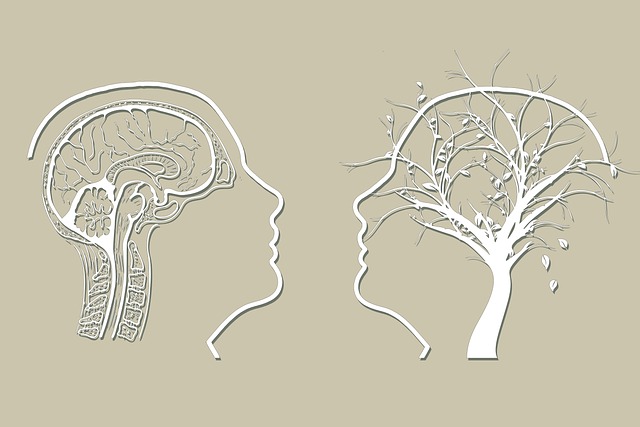Emotional intelligence (EI), encompassing self-awareness, self-regulation, empathy, and social skills, is crucial for mental health and personal growth. Englewood Post-Traumatic Stress Disorder (PTSD) therapy emphasizes EI enhancement through techniques like mindfulness, active listening, and safe emotion exploration to improve stress management, relationships, decision-making, and life satisfaction, ultimately cultivating resilience and well-being.
Emotional intelligence (EQ) is a vital component of overall well-being, significantly impacting mental health. This article explores how building EQ can aid in PTSD recovery through effective strategies such as therapy and cultivating self-awareness. We delve into the power of empathy and active listening, essential skills to connect with others and foster strong relationships. Understanding EQ’s role in navigating trauma, particularly when coupled with Englewood Post-Traumatic Stress Disorder Therapy, offers a transformative path to healing and enhanced emotional resilience.
- Understanding Emotional Intelligence and Its Impact on Mental Health
- The Role of Therapy in Enhancing EQ for PTSD Recovery
- Strategies to Cultivate Self-Awareness: A Cornerstone of Emotional Intelligence
- Developing Empathy: Connecting with Others Through Emotional Understanding
- Practicing Active Listening: A Powerful Tool for Building Strong Relationships
Understanding Emotional Intelligence and Its Impact on Mental Health

Emotional intelligence (EI) refers to the ability to recognize, understand, and manage one’s own emotions as well as recognize, interpret, and influence the emotions of others. This multifaceted skillset includes self-awareness, self-regulation, motivation, empathy, and social skills. Understanding and cultivating emotional intelligence can have profound effects on mental health. Research has shown that individuals with higher EI levels are better equipped to cope with stress, anxiety, and depression, reducing the risk of developing conditions like Englewood Post-Traumatic Stress Disorder (PTSD) Therapy.
Moreover, EI plays a crucial role in personal growth and well-being. Mental wellness coaching programs focused on development often incorporate strategies to enhance emotional intelligence. By fostering positive thinking and boosting confidence, individuals can improve their ability to navigate relationships, make better decisions, and achieve greater life satisfaction. This holistic approach recognizes that mental health is intricately linked to our emotional experiences and interactions, underscoring the importance of EI in promoting overall well-being.
The Role of Therapy in Enhancing EQ for PTSD Recovery

Englewood Post-Traumatic Stress Disorder (PTSD) therapy plays a pivotal role in enhancing emotional intelligence (EQ) and facilitating recovery for individuals grappling with this condition. The therapeutic process provides a safe space for clients to explore and understand their emotions, a crucial aspect of EQ development. Through various evidence-based approaches, therapists help patients develop inner strength and resilience, enabling them to manage intense feelings effectively.
This form of therapy empowers individuals to recognize and regulate their emotional responses, which is essential for improving interpersonal relationships and overall well-being. By addressing underlying trauma and anxiety, PTSD therapy contributes significantly to building resilience, allowing individuals to navigate challenging situations with greater equanimity. Consequently, enhanced EQ promotes better coping mechanisms, leading to improved mental health and quality of life.
Strategies to Cultivate Self-Awareness: A Cornerstone of Emotional Intelligence

Cultivating self-awareness is a powerful strategy to enhance emotional intelligence. This involves introspecting and recognizing your emotions, thoughts, and triggers. Through mindfulness meditation, individuals can learn to observe their internal experiences without judgment, fostering a deeper understanding of themselves. Engaging in regular reflection practices allows one to identify patterns, recognize early signs of stress or anxiety, and develop healthier coping mechanisms. For instance, someone struggling with Englewood Post-Traumatic Stress Disorder (PTSD) Therapy can benefit from mindfulness meditation as a tool to process traumatic memories and gain control over their emotional responses.
Building self-awareness is the first step towards effective emotional regulation. By becoming more attuned to your feelings, you can better manage them and respond thoughtfully in various situations. This skill is crucial for improving relationships, making sound decisions, and fostering a positive mindset. Combining self-awareness with confidence-boosting techniques and exploring emotional healing processes can lead to significant personal growth and overall well-being.
Developing Empathy: Connecting with Others Through Emotional Understanding

Developing empathy is a cornerstone of building emotional intelligence, especially for individuals navigating post-traumatic stress disorder (PTSD). Through engaging in Englewood PTSD therapy, one can learn to recognize and understand the emotions of others, fostering deeper connections and meaningful interactions. This process involves actively listening, observing non-verbal cues, and placing oneself in another’s shoes to gain insight into their experiences and perspectives.
By cultivating empathy, individuals enhance their emotional intelligence, enabling them to respond sensitively to others’ needs. This skill is pivotal for building resilience, as it allows people to support one another through challenging times, fostering a sense of community and understanding. It also promotes healthier relationships by encouraging open communication and a deeper level of compassion, ultimately contributing to improved well-being.
Practicing Active Listening: A Powerful Tool for Building Strong Relationships

In the realm of Englewood Post-Traumatic Stress Disorder Therapy, active listening stands out as a game-changer in fostering strong relationships. This powerful tool involves fully concentrating on what’s being said, understanding the speaker’s perspective, and providing genuine feedback. By practicing active listening, individuals can significantly enhance their emotional well-being promotion techniques, leading to deeper connections and improved mental health policy analysis and advocacy.
In contrast to merely hearing words, active listening encourages empathy and understanding, which are crucial for building trust. This skill is not only beneficial in therapeutic settings but also plays a pivotal role in everyday interactions. When individuals listen actively, they contribute to self-esteem improvement by making others feel heard and valued, thereby fostering healthier relationships across various contexts.
Emotional intelligence is a powerful tool for navigating life’s challenges, particularly in recovering from PTSD. Through therapy, individuals can unlock the potential of their EQ, fostering self-awareness and empathy which are essential for building strong relationships. Active listening serves as a bridge to connect with others on a deeper level. By implementing these strategies, Englewood Post-Traumatic Stress Disorder Therapy offers a holistic approach to mental health improvement, empowering individuals to lead more fulfilling lives.














